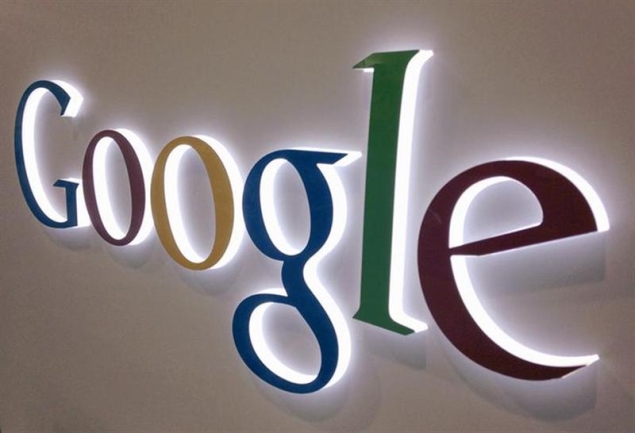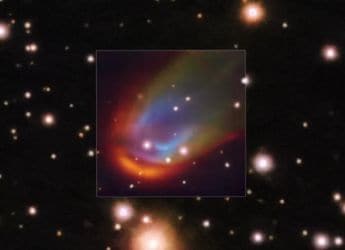- Home
- Internet
- Internet News
- Israel says Google's "Palestine" page harms peace hopes
Israel says Google's "Palestine" page harms peace hopes

Palestinians hailed Google's move as a virtual victory on the long path to the state they seek in the West Bank, East Jerusalem and Gaza Strip, which Israel seized in the 1967 war.
With bilateral negotiations stalled for 2-1/2 years over Jewish settlement building, the Palestinians have campaigned for foreign recognition of statehood, and were upgraded to "non-member state" at the United Nations in November.
Following the U.N. lead, Google's Palestinian homepage and other products previously labelled "Palestinian Territories" were changed on May 1 to read "Palestine".
"I think that the Google decision from the last few days is very, very problematic," said Deputy Israeli Foreign Minister Zeev Elkin, a confidant of Prime Minister Benjamin Netanyahu.
"When a company like Google comes along and supports this line, it actually pushes peace further away, pushes away negotiations, and creates among the Palestinian leadership the illusion that in this manner they can achieve the result," he told Israel's Army Radio.
"Without direct negotiation with us, nothing will happen."
A Google spokesman in Israel referred Reuters to a statement from last week in which it said: "We are following the lead of the U.N. and other international organizations."
Israel was furious at the U.N. upgrade last November, which was opposed by the United States but passed by an overwhelming majority, and reacted by withholding Palestinian government funds and announcing more settlement building.
An adviser to Palestinian President Mahmoud Abbas described the move as a "victory for Palestine and a step toward its liberation".
Google had "put Palestine on the Internet map, making it a geographical reality", the adviser, Sabri Saidam, told the official news agency WAFA, adding that the Palestinians had invited Google's cartographers to come and gather more data for their online maps.
Google Maps currently shows little or no detail for major Palestinian towns such as Nablus and Ramallah, while many Jewish West Bank settlements have streets and parks clearly labelled.
Saidam said Israeli opposition to Google's new rubric was rooted in fear that "the recognition will destroy Israel's concept of 'Judea and Samaria'" - the biblical names that the Jewish state uses for the West Bank.
© Thomson Reuters 2013
Catch the latest from the Consumer Electronics Show on Gadgets 360, at our CES 2026 hub.
Related Stories
- Samsung Galaxy Unpacked 2025
- ChatGPT
- Redmi Note 14 Pro+
- iPhone 16
- Apple Vision Pro
- Oneplus 12
- OnePlus Nord CE 3 Lite 5G
- iPhone 13
- Xiaomi 14 Pro
- Oppo Find N3
- Tecno Spark Go (2023)
- Realme V30
- Best Phones Under 25000
- Samsung Galaxy S24 Series
- Cryptocurrency
- iQoo 12
- Samsung Galaxy S24 Ultra
- Giottus
- Samsung Galaxy Z Flip 5
- Apple 'Scary Fast'
- Housefull 5
- GoPro Hero 12 Black Review
- Invincible Season 2
- JioGlass
- HD Ready TV
- Laptop Under 50000
- Smartwatch Under 10000
- Latest Mobile Phones
- Compare Phones
- Samsung Galaxy A07 5G
- Vivo Y500i
- OnePlus Turbo 6V
- OnePlus Turbo 6
- Itel Zeno 20 Max
- OPPO Reno 15 Pro Mini 5G
- Poco M8 Pro 5G
- Motorola Signature
- Lenovo Yoga Slim 7x (2025)
- Lenovo Yoga Slim 7a
- Realme Pad 3
- OPPO Pad Air 5
- NoiseFit Pro 6R
- Xiaomi Watch 5
- Acerpure Nitro Z Series 100-inch QLED TV
- Samsung 43 Inch LED Ultra HD (4K) Smart TV (UA43UE81AFULXL)
- Asus ROG Ally
- Nintendo Switch Lite
- Haier 1.6 Ton 5 Star Inverter Split AC (HSU19G-MZAID5BN-INV)
- Haier 1.6 Ton 5 Star Inverter Split AC (HSU19G-MZAIM5BN-INV)

















